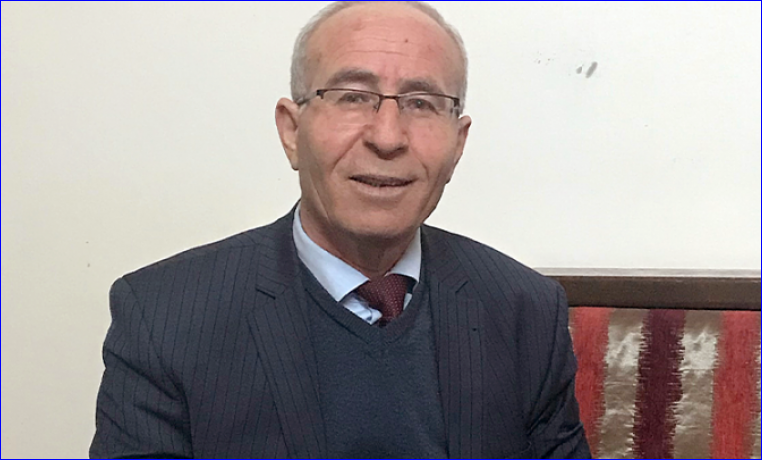


 Mindy Belz)
Mindy Belz)
Moshe's dignified profile shouldn't fool anyone: He's actually an enemy of the state. President Bashar al-Assad's regime arrested him in 2013 and held him for 2½ years, a man of peace caught in the politics of war.
Moshe heads the Assyrian Democratic Organization (ADO), a prominent party founded in the 1950s. ADO draws support from Syriac, Chaldean, and Assyrian Christians who dream of a day when they will have truly representative government and equal rights under the law. His stature--and threat to the state--grew as the plight of Christians and other minorities in Syria worsened.
The 56-year-old in many ways is a man without a country. Born in Qameshli and arrested by its state security bureau, Moshe returned to live here. He grew up among Arabs and Kurds in this city with churches on nearly every corner. His father owned a shop in the Jewish quarter.
Such diversity served Moshe in building a wide political base, though today Qameshli is divided, with war driving out perhaps half its population. In an uneasy truce, the Syrian army controls some sectors and opposition Syrian Democratic Forces (SDF) others. Offices for anti-Assad groups like ADO and the Syriac Military Council actually sit inside a government-controlled area.
Moshe operates now on the periphery, and under the watchful eye of the state. Though a long-standing partner in the opposition, Moshe's ADO opposes taking up arms, making it an uneasy ally with militias governing northeast Syria.
If that's not enough, he and other Christians find themselves at odds with their Christian brethren. The patriarchs and most leaders in Syria's established churches continue to support Assad, seeing him as despotic enough to control jihadists and other enemies of the church.
It was a political disagreement with Barnabas that sent the Apostle Paul back to Syria, so we shouldn't be surprised that eight years into the Syrian War, Christians find themselves divided. Yet the breach has consequences, especially as Assad retakes most of the country and appears stronger than ever.
A long record of injustices starting with Hafez al-Assad, Bashar's father who ruled Syria from 1971 until his death in 2000, has taught Moshe and democracy advocates like him to yearn for something altogether new.
He and others formed the Damascus Declaration for Democratic National Change in 2006 as a secular coalition calling for gradual and peaceful transition. When 2011 Arab Spring protests ignited in Syria, the coalition evolved into the leading voice for political change--democratic, non-Islamist change--all the while struggling to win deserved recognition and support from the West. The jihadist armies that hijacked Syria's anti-Assad revolt confined the democrats' gains to this enclave east of the Euphrates.
Moshe endured setbacks from the Assads and from the terrorists. Like many in the opposition, he thinks the two are linked.
With war underway in 2011, Assad without explanation released Islamist fighters from Sednaya Prison. Many went on to head the al-Qaeda--linked forces fighting in Syria--raising speculation that Assad actually contrived to use jihadist groups as a justification for all-out attacks, which have included chemical weapons and barrel bombs. All opposition groups became "terrorists," justifying Assad calling in Hezbollah and beckoning Russian intervention.
The Assad regime has notoriously not protected some Christian populations in the war. That includes Damascus and Aleppo with their loyal church bases, where church leaders were kidnapped under government-held areas, raising suspicions. But in historically Christian Hasakah, the region that includes Qameshli, populations that also opposed Assad were left particularly vulnerable to attack by jihadists.
U.S. strategists have been slow to understand the complex battlefield, allowing Russia and Assad to gain the upper hand, perhaps only putting off a coming cataclysm for people who most deserve support. "It's the peaceful people who are attacked and suffer most here," he said.

or register to post a comment.